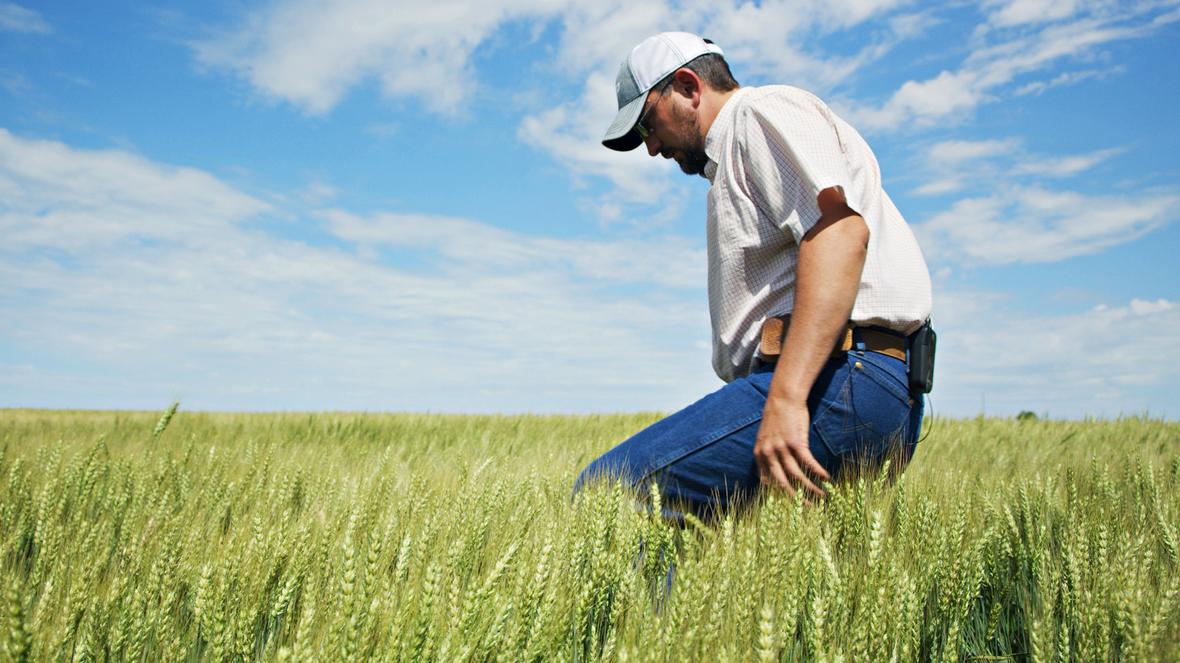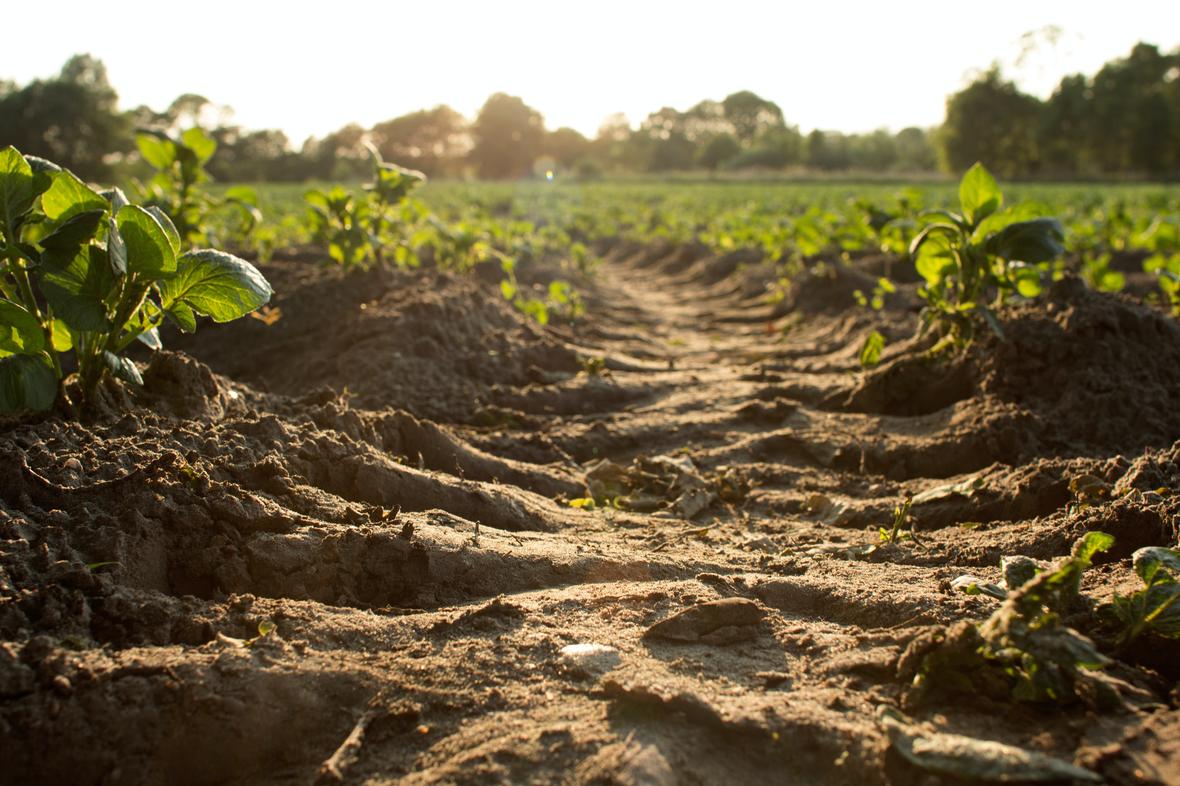The Road to COP28
With horrific wars disrupting supply chains and driving ongoing humanitarian crises in Europe and the Middle East, and with 2023 being named the warmest year on record – with a concurrent increase of severe weather events such as heavier rains and floods, longer heatwaves, droughts and wildfires – it continues to become more and more clear that the world needs to come together to tackle both food security and climate change as a single, intertwined global priority.
Earlier this year, the COP28 UAE Presidency issued a call to governments and the global food community to commit to scaling solutions, investments and partnerships to advance the resiliency of food systems while combating climate change. This year's meeting, which takes place between November 30 and December 12, will be the first COP to include a day dedicated to Food, Agriculture and Water.
At ADM, we believe that everyone has the right to the food they need to sustain their lives. And, with sustainability as a pillar of our purpose and a foundation of our growth strategy, we are committed to leading our industry in finding new, innovative ways to meet the world’s needs both for food security and sustainability.
ADM is a pillar of the global food system, and a leader in sustainable agriculture and food solutions, we know we cannot do this alone. That’s why ADM will be at COP28 to engage with stakeholders spanning the food and agriculture value chain on collaborative adoption of practices that can help feed the world and protect nature.

Supporting the Agriculture Supply Chain of the future
At ADM, everything starts on the farm. In 2022, we enrolled over one million North American acres in regenerative agriculture programs, sequestering 115,500 metric tons of CO2 and reducing CO2e emissions by 253,000 metric tons -- equivalent to removing more than 80,000 cars from the road for a year. We’re already nearing our goal of 2 million acres in 2023, and just announced the expansion of our efforts into Brazil as we continue to build toward 4 million acres globally by 2025.
Regenerative agriculture isn’t just about reducing carbon footprints. It’s also about securing the food system of the future. One of our critical measures of regenerative agriculture success is productivity – we're helping farmers do more with less by working with them to support Indigenous ways of land management, including:
• Minimizing soil disturbance
• Maintaining living roots in soil
• Continuously covering bare soil
• Maximizing diversity with emphasis on crops, soil microbes, and pollinators; and
• Responsibly managing inputs including nutrients and pesticides.
This strengthens our food system today and for the future, while simultaneously ensuring we’re meeting the evolving needs of consumers, the overwhelming majority of whom – according to our recent paper, “Farming for the Future: The State of Regenerative Agriculture Program Adoption” – are more likely to trust and purchase from retailers and brands that implement regenerative agriculture programs.
The supply chain of the future needs to protect nature in other ways as well. Last year, ADM committed to deforestation-free supply chains by 2025. Now we’re adding to our ambitious goals, with a new commitment to have all direct supply chains free of conversion of primary native vegetation in defined high-risk areas by December 31, 2025, and indirect supply chains free of conversion of primary native vegetation in defined high-risk areas by no later than December 31, 2027. ADM continues to work with soy sector partners and stakeholders, which is critical to advancing these key goals. ADM signed the Agriculture Sector Roadmap to 1.5°C and has continued to work with the Tropical Forest Alliance, The Brazilian Association of Vegetable Oil Industries (ABIOVE) and industry peers over the last year on creating solutions within the soy sector that protect nature.
Doing Business the Right Way to Sustainably Feed the World
ADM understands that we have to lead by example, including in our own footprint. In 2022, we announced our aspiration to reach net-zero by 2050, and committed to working with the Science-Based Targets Initiative to align our sustainability targets with ambitious goals to limit the average rise of global temperatures to 1.5 degrees Celsius. And as we drive the use of low-carbon energy globally across ADM, we’ve set a Strive 35 goal of 25% of our total energy usage coming from low-carbon sources by 2035.
We're proud to have reduced our combined Scope 1 and 2 footprint by 7.8% and identified a glidepath of projects that could reduce our footprint by an additional 5 million MT of CO2e. We know that reaching our ambitious goals will take investment and innovation. For example, since becoming the first American company to be granted a Class VI carbon capture and storage well permit by the United States EPA a decade ago, we’ve permanently and safely stored 3.9 million metric tons of carbon dioxide under the ground – equivalent to removing almost 870,000 gas-powered cars from the road for one year. Those capabilities are driving new innovation, including our partnership with Broadwing Energy for a first-of-its power and steam facility that will capture over 90% of CO2 emissions.

ADM is also engaging organizations such as the E.O. Wilson Biodiversity Foundation to accelerate biodiversity research and help prepare the next generation of climate innovators. In fall of 2023, ADM pledged $1 million to champion research and education to better understand the world and nurture future biodiversity stewardship.
Where to Find Us at COP28
ADM will be partnering with the World Climate Foundation at COP28 to host a panel, located in the Blue Zone, on December 4. Our conversation will explore the role and importance of cross-sector action and investment in catalyzing the technologies around innovations required to futureproof agriculture and food systems for growers, customers and consumers alike. We will discuss the importance of value chain collaboration and incentive structures in the context of today's economic landscape – and share success stories of how we are advocating for and implementing climate-smart practices. We will also be speaking to one of our regenerative agriculture partnerships on December 4 at a panel located at the Presidency Stage within the Blue Zone.
Through its partnership with AIM for Climate, ADM has been invited by the UAE’s COP28 Presidency – which is working closely with the World Business Council for Sustainable Development (WBCSD), a long-time ADM partner – to serve on the non-governmental food-related track steering committee, in addition to participating in the COP28 Action Agenda on Regenerative Landscapes.
Transforming global food systems, enhancing the resiliency of agriculture, and scaling incentives and programs that embed emissions-reducing technologies throughout the agriculture value chain can’t be done in a silo. We look forward to a productive dialogue at COP28 and invite all partners and stakeholders to join in the discussion.
References:
1. https://www.nature.com/articles/s43016-021-00225-9/
2. https://www.unep.org/interactive/emissions-gap-report/2022/